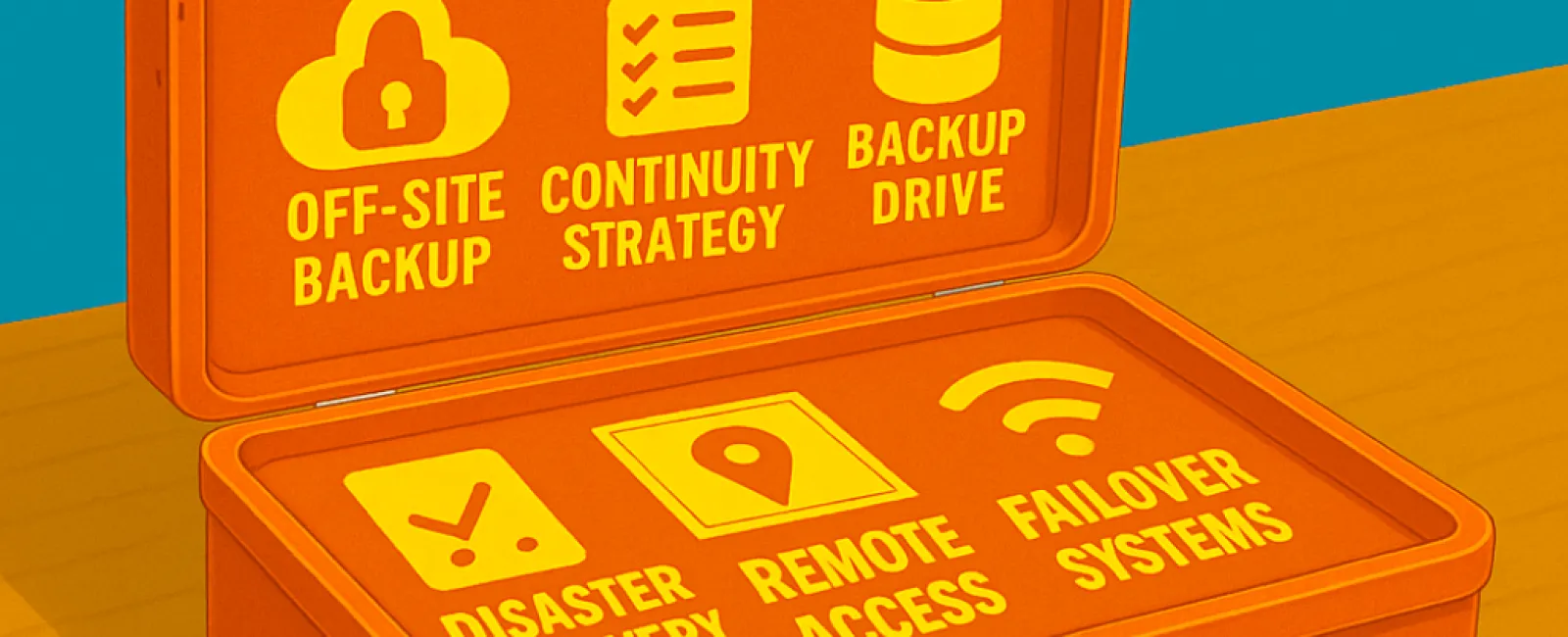July 28, 2025
Unexpected power failures, cyberattacks, hardware malfunctions, and natural calamities often strike without warning, posing severe threats to small businesses. While many believe that simply having backups is sufficient, the reality is that restoring files alone doesn't guarantee business continuity. If your systems are inaccessible, remote work isn't supported, or communication with your team and clients falters, even brief interruptions can escalate into prolonged setbacks. Your IT partner should equip you with more than just backups—they should deliver a comprehensive strategy to keep your business thriving through any crisis.
Backups Alone Won't Cut It — Embrace True Business Continuity
Backups are undoubtedly critical, but they represent only one piece of the puzzle. What your business truly needs is a robust continuity plan—a forward-thinking approach designed to maintain operations during and after disruptions.
When systems fail, data is unreachable, or your physical office is compromised, relying solely on local backup files offers little relief. Without a swift, well-defined recovery plan, your business faces significant risks, including lost revenue, damaged reputation, and compliance issues.
Understanding the Crucial Difference: Backups vs. Business Continuity
Many businesses misunderstand this key distinction:
● Backups enable data restoration.
● Continuity ensures your business keeps running smoothly, regardless of setbacks.
A comprehensive continuity plan addresses vital questions such as:
● How quickly can we recover operations?
● Where will our team work if the office becomes unusable?
● Which systems are essential for daily functions?
● Who is tasked with initiating the recovery process?
Key components also include:
● Encrypted, off-site, and immutable backups
● Prioritized recovery objectives (RTO/RPO)
● Preparedness for remote work scenarios
● Redundant infrastructure and automatic failovers
● Routine disaster simulation drills
If your IT provider can't confidently guide you through these essentials, it's not protection—they're just hoping for the best.
Could This Happen to Your Business?
This isn't a scare tactic—it's a reality check. Recent events show how businesses suffer without proper continuity plans:
● Florida hurricanes forced hundreds of businesses to halt operations, especially those lacking cloud access.
● North Carolina floods destroyed on-site servers, wiping out months of critical data.
● California wildfires razed entire office buildings without off-site recovery solutions.
● Numerous small businesses hit by ransomware attacks discovered their backups were either corrupted or never tested.
Disasters don't discriminate—they impact businesses of all sizes every day.
Essential Questions to Ask Your IT Provider Now
If disaster strikes tomorrow, will your business continue operating?
Make sure to ask:
● How quickly can we recover if ransomware attacks?
● Are our backups regularly tested and comprehensive?
● What's the contingency plan if a flood or fire damages our office?
● Is our continuity strategy compliant with industry standards?
● Can we maintain client service if our team must work remotely?
If you lack full confidence in these answers, your business is vulnerable.
Disasters Are Inevitable. Downtime Is Optional.
While you can't prevent every outage, storm, or cyberattack, you can control how your business responds.
A reliable IT partner helps you bounce back.
An exceptional one ensures your operations never miss a beat.
Ready to assess your business's resilience?
Click Here or call us at 336-904-2445 to schedule your FREE 15-Minute Discovery Call and safeguard your business against unexpected downtime.





